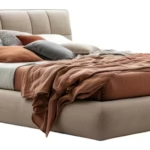“Dealmagnet.uk is a participant in the Amazon EU Associates Programme, an affiliate advertising programme designed to provide a means for sites to earn advertising fees by advertising and linking to Amazon.co.uk.”
Mini PCs have transformed the way people use computers. Once considered niche devices, they are now powerful, compact, and versatile enough to serve in homes, offices, and even entertainment setups. Whether you want a space-saving workstation, a home theater hub, or a portable computer for travel, a mini PC can be the perfect solution.
But with so many models on the market, the real challenge is knowing what to look for before you buy. This guide breaks down everything you need to know: from key specifications and use cases to the pros, cons, and expert tips that will help you make the right decision.
What to Consider Before Buying a Mini PC
1. Performance Needs
Think about how you plan to use your mini PC:
- Basic tasks: web browsing, emails, video calls → entry-level processors, 4–8 GB RAM.
- Office productivity: spreadsheets, multitasking → mid-range processors, 8–16 GB RAM.
- Creative work: photo/video editing, design software → high-performance processors, 16–32 GB RAM, dedicated graphics.
- Gaming or 3D rendering: strong GPU support, fast SSD, and cooling system.
2. Size & Form Factor
Mini PCs come in different shapes and sizes:
- Ultra-compact: as small as a smartphone, ideal for portability.
- Small desktop size: slightly larger, with more ports and better cooling.
- Modular mini PCs: allow upgrades for storage, RAM, or graphics.
3. Storage Options
- SSD (Solid State Drive): Faster boot times, smoother performance.
- HDD (Hard Disk Drive): More affordable, good for bulk storage.
- Hybrid setups: SSD for operating system + HDD for files.
4. Memory (RAM)
- 4 GB: Minimal usage (not recommended for multitasking).
- 8 GB: Good for everyday work.
- 16 GB: Comfortable for multitasking and heavier apps.
- 32 GB+: Best for professionals and gamers.
5. Graphics Capabilities
- Integrated graphics: Fine for everyday use and streaming.
- Dedicated GPU: Needed for gaming, 3D modeling, or editing.
6. Connectivity & Ports
Make sure your mini PC has the connections you need:
- USB-A and USB-C for accessories.
- HDMI or DisplayPort for monitors.
- Ethernet for stable internet.
- Wi-Fi 6 and Bluetooth for wireless use.
7. Operating System
- Windows, Linux, or ChromeOS options.
- Choose based on your software compatibility and personal comfort.
8. Noise & Cooling
Some mini PCs are fanless and silent, while others include fans for better performance. Silent models are great for living rooms, while fan-cooled models handle heavier loads.
Summary of Mini PC Options
| Use Case | Recommended Specs | Why It Works Best |
|---|---|---|
| Everyday Use | Entry processor, 8 GB RAM, 256 GB SSD | Lightweight, cost-effective, compact |
| Business/Office | Mid-range CPU, 16 GB RAM, 512 GB SSD | Handles multitasking, office apps smoothly |
| Creative Work | High CPU, 16–32 GB RAM, large SSD, GPU | Powerful enough for editing/design |
| Gaming | Dedicated GPU, strong cooling, fast SSD | Delivers smooth frame rates & performance |
| Home Theater (HTPC) | Small form factor, quiet, HDMI, Wi-Fi 6 | Great for streaming and entertainment setups |
Pros & Cons of Mini PCs
Pros
- Compact design: Saves desk or living room space.
- Energy efficient: Consumes less power than full desktops.
- Portable: Easy to carry between home, office, or travel.
- Customizable: Some models allow RAM and storage upgrades.
- Versatile: Works as office PC, media hub, or gaming rig.
Cons
- Limited upgrades: Not as flexible as full desktop towers.
- Smaller cooling systems: May struggle with heat under heavy load.
- Less powerful for extreme gaming: Dedicated desktops perform better.
- Fewer ports on ultra-compact models: May require hubs or adapters.
Who Mini PCs Are Best For
- Students: Great for study, online classes, and dorm rooms.
- Remote workers: Reliable, compact PCs for home offices.
- Business users: Perfect for offices with limited space.
- Creative professionals: Editing or design on high-performance models.
- Gamers: Dedicated mini gaming PCs with powerful GPUs.
- Home users: Ideal for streaming, browsing, and light multitasking.
- Travelers: Portable computing without carrying a bulky laptop.
Expert Tips for Buying a Mini PC
- Think about future-proofing
Even if you don’t need much power today, aim for at least 16 GB RAM and SSD storage to keep your mini PC useful for years. - Don’t ignore cooling
Heat is the biggest issue in compact systems. Look for reviews that mention quiet yet effective cooling. - Check upgrade options
Some mini PCs allow easy upgrades to RAM or storage. This can extend the life of your device. - Match your monitor setup
If you want dual monitors, make sure the mini PC supports multiple outputs (HDMI, DisplayPort, etc.). - Energy savings
A mini PC often consumes less than half the energy of a traditional desktop, saving on electricity costs over time.
FAQs About Mini PCs
Q: Can a mini PC replace a desktop computer?
A: Yes, for most tasks like browsing, office work, and even creative work. For very high-end gaming or heavy 3D rendering, a full desktop may still be better.
Q: Are mini PCs better than laptops?
A: They offer similar power but in a desktop form. They’re more stationary than laptops but often more customizable.
Q: Can I connect a mini PC to any monitor or TV?
A: Yes, as long as it has compatible ports (HDMI, DisplayPort, or USB-C).
Q: Do mini PCs support gaming?
A: Yes, models with dedicated graphics can handle modern games, though usually at medium settings.
Q: Are fanless mini PCs good?
A: Fanless models are silent and great for media centers but may struggle under heavy workloads.
Final Recommendation
Mini PCs strike the perfect balance between size, efficiency, and performance. The right choice depends on your needs:
- For basic use, go with a budget-friendly model with 8 GB RAM.
- For office work, aim for mid-range specs with strong multitasking support.
- For creatives and gamers, invest in higher RAM, a fast SSD, and dedicated graphics.
- For entertainment setups, choose a compact, silent model with HDMI and Wi-Fi.
No matter which option you choose, a mini PC offers flexibility, energy savings, and the power to handle modern tasks in a much smaller footprint.
In short: if you want performance in a compact package, a mini PC is one of the smartest buys you can make today.ent options, you’ll create spaces that are not only functional but also inviting and stylish.
Latest Posts
- Everyday Essentials Buying Guide: Make Smart Choices for Daily LivingMini Projector HD 1080P 4K Supported Smart Projectors Auto Keystone & Focus 22000 Lumen 260 ANSI Bightness WIFI 6 and Bluetooth Home Theatre 200″ w 270°Rotatable Stand for Game/Bedroom/Outdoor/Phone eudic Doorbell Camera Wireless,Video Doorbell,Night Vision, 2-Way Audio, PIR Motion Detection, 2.4Ghz WiFi,Real-Time Alert, Cloud Storage (J4) Vieshful Motorcycle Helmet Holder Wall Mount, Helmet Stand with… Read more: Everyday Essentials Buying Guide: Make Smart Choices for Daily Living
- Smart Choices: Your Complete Buying Guide for Good Smart TabletsPOWSTR 120cm Workbench On Wheels,Foldable Workbench With 500KG Load Capacity,5-Level Height Adjustment,Wooden Workbench Suitable for Garages,Offices,and Homes POWSTR Adjustable Workbench with 360° Lockable Wheels, 32″-42″ Height-Adjustable Work Table with Six-Level Settings,Suitable for Garages, Workshops, Offices and Home Septekon Security Camera Outdoor, CCTV Camera, 2K Dual Antenna WiFi Home Surveillance Cameras with IP66 Waterproof, Night Vision,… Read more: Smart Choices: Your Complete Buying Guide for Good Smart Tablets
- Smart Choices: Your Complete Buying Guide for Good Smart TabletsDOOGEE T30S Android 15 Tablet 11 Inch Tablets 2.4K Tablets with Sim Card Slot, 16GB RAM+256GB ROM TF1TB T606 Octa-Core, 8580 mAh 8MP+13MP 3.5mm, 5G WIFI, Bluetooth 5.0 Android Gaming Tablet – Black DOOGEE Tab E3+ Android 15 Tablets 12 Inch Android, FHD+Tablet With SIM Card Slot, Helio G100 Octa-Core AI Tablets, 90 Hz Gaming… Read more: Smart Choices: Your Complete Buying Guide for Good Smart Tablets
- Sleep Better with Top Memory Foam Mattresses – –
 A good night’s sleep starts with the right mattress. Memory foam mattresses have become a popular choice for sleepers seeking pressure relief, spinal support, and motion isolation. But not all memory foam mattresses are made the same. Whether you’re a side sleeper, back sleeper, or someone who struggles with chronic pain, choosing the best memory… Read more: Sleep Better with Top Memory Foam Mattresses – –
A good night’s sleep starts with the right mattress. Memory foam mattresses have become a popular choice for sleepers seeking pressure relief, spinal support, and motion isolation. But not all memory foam mattresses are made the same. Whether you’re a side sleeper, back sleeper, or someone who struggles with chronic pain, choosing the best memory… Read more: Sleep Better with Top Memory Foam Mattresses – – - Everyday Essentials Buying Guide: Make Smart Choices for Daily LivingCHAOKE Walking Pad Treadmill with 9% Incline, 10KM/H Under Desk Treadmill for Home Office 2.75HP Quiet Motor Running Machines Max 330LBS Capacity with 12 HIIT Programs and Remote Control Helangel Foldable Learning Tower with 3 Level Adjustable Height,Mothers’ Helper Montessori Learning Step Ladder,Kitchen Helper kids kitchen Step Stool for Kitchen Counter,18 Month-6Years (Black) Dehumidifier for… Read more: Everyday Essentials Buying Guide: Make Smart Choices for Daily Living
- Sleep Better with Top Memory Foam Mattresses –
 A good night’s sleep starts with the right mattress. Memory foam mattresses have become a popular choice for sleepers seeking pressure relief, spinal support, and motion isolation. But not all memory foam mattresses are made the same. Whether you’re a side sleeper, back sleeper, or someone who struggles with chronic pain, choosing the best memory… Read more: Sleep Better with Top Memory Foam Mattresses –
A good night’s sleep starts with the right mattress. Memory foam mattresses have become a popular choice for sleepers seeking pressure relief, spinal support, and motion isolation. But not all memory foam mattresses are made the same. Whether you’re a side sleeper, back sleeper, or someone who struggles with chronic pain, choosing the best memory… Read more: Sleep Better with Top Memory Foam Mattresses – - Stay Connected Smartly: Buying Guide for Good SmartphonesDOOGEE Note 56 Mobile Phones, Newest Android 16 Smartphone, 6150mAh, 8.45mm Ultra-Slim, 6.56″ HD+ 90Hz, 24GB + 64GB/2TB Android Phones, Dual SIM Unlocked Mobile Phone, Face ID, GPS, OTG, FM-Black DOOGEE Note 58 Mobile Phones – Newest Android 16 Smartphone, 6.75″ HD+ Display, 6250mAh Android Phones, 32GB(8GB RAM)+128GB+2TB SIM Free Mobile Phone, Face ID, Widevine… Read more: Stay Connected Smartly: Buying Guide for Good Smartphones
- Everyday Essentials Buying Guide: Make Good Choices for Daily LivingKevsuvqin Laser Level, Laser Levels Self Leveling with 2 Batteries and LED Display, 4×360 Lazer Level Tool with Tool Box, 16 Green Lines/APP/Remote Control/Pulse Mode/IP54 Waterproof 2026 NEW Folding Treadmills with App, 12km/h Quiet Treadmill Built-in Speaker, 6-in-1 Walking Pad with 2.75HP Motor, 9% Incline Treadmills for Home Portable with Magnetic Remote Control, LCD, 160KG… Read more: Everyday Essentials Buying Guide: Make Good Choices for Daily Living
- Smart Choices: Your Complete Buying Guide for Smart Tablets –In today’s fast-paced digital world, smart tablets have evolved from luxury gadgets to everyday essentials. Whether you’re a student attending online classes, a business professional working remotely, or a casual user streaming movies, a smart tablet can serve as the perfect middle ground between a laptop and a smartphone. But with countless models, specifications, and… Read more: Smart Choices: Your Complete Buying Guide for Smart Tablets –
- Strong Steps to Adventure: Buying Guideline for Wooden Climbing Tripod SetsToddler Climbing Frame, Wooden Climbing Tripod Set, with Climbing Frame, Soft Cushion, Montessori Climbing Fitness Set, for Children Aged 1-3 Indoor and Outdoor Use (Rainbow color) “Dealmagnet.uk is a participant in the Amazon EU Associates Programme, an affiliate advertising programme designed to provide a means for sites to earn advertising fees by advertising and linking… Read more: Strong Steps to Adventure: Buying Guideline for Wooden Climbing Tripod Sets
- Sound On: The Ultimate Portable Speaker Buying GuideShower Speaker, Portable Bluetooth Speaker with IPX7 Waterproof, Portable Speakers with 360° Stereo Sound, Suction Cup, RGB Lights & Built-in Mic, Wireless Speaker for Bathroom Travel Outdoor Beach Senzer CS30 Computer Speaker for Desktop,Usb Powered Desktop Speaker with Flowing LED Bluetooth Gaming SoundBar Speaker for PC Laptop Monitor Smartphones(Not 3.5mm Jack) “Dealmagnet.uk is a participant… Read more: Sound On: The Ultimate Portable Speaker Buying Guide
- Clean Smarter: The Ultimate Vacuum Cleaner Buying GuideResmafn Handheld Car Vacuum Cleaner Cordless – Hand Vacuum with 2 Reusable Filter and Motorized Brush Strong Suction Powerful Portable Wireless Lightweight Long Runtime Hand-held Vaccum USB for Home UNINELL HOME Cordless Rechargeable Vacuum Cleaner with Wall Mount Charging, 48Kpa 550W 65Mins for Home, Anti-Tangle Stick Vacuum Self-Standing for Pet Hair/Carpet Yousmart Steam Cleaner Handheld,… Read more: Clean Smarter: The Ultimate Vacuum Cleaner Buying Guide
- Smart & Safe Choices: Guide to Advent Calendars 2025 & CO DetectorsAs 2025 approaches, two very different products gain popularity in households: the Advent Calendar, a festive tradition that builds excitement leading up to Christmas, and the Carbon Monoxide (CO) Detector with Digital Display, a safety device essential for protecting your home and family. While one adds joy to the winter season, the other provides year-round… Read more: Smart & Safe Choices: Guide to Advent Calendars 2025 & CO Detectors
- Stay Connected Smartly: Buying Guide for SmartphonesDOOGEE NOTE 56 X Mobile Phones, Newest Android 16 Phone, 6150mAh, 6.56″ HD+ 90Hz, 24GB + 64GB/2TB Android Phones, Octa Core, Dual SIM Unlocked Mobile Phone, Face ID, 3.5mm Jack, GPS, OTG-Black DOOGEE S200 Rugged Smartphone 5G, 6.72”FHD+/120Hz Android Rugged Phone with 1.32″ AMOLED Rear Display, 10100mAh/33W, 32GB+256GB/2TB, 100MP+20MP+20MP Night Vision Camera, WiFi 6/NFC/Fingerprint, Silver… Read more: Stay Connected Smartly: Buying Guide for Smartphones
- Smart Choices: Your Complete Buying Guide for Smart TabletsDOOGEE U10 Android 16 Tablets, 10 Inch HD+ IPS Tablet, 16GB RAM+128GB ROM+2TB Al Tablet, 5060mAh Android Tablets, 8MP+5MP Cameras, Gemini Al/Widevine L1/WIFi 6/BT 5.0/3.5mm headphone- Gray DOOGEE TAB A9+ 2025 Newest Android 16 Tablet with Gemini AI, 11 Inch 8580mAh Tablet With Keyboard, T7200 Octa Core Android Tablets, 20GB+64GB / 2TB Tablets With Pen,… Read more: Smart Choices: Your Complete Buying Guide for Smart Tablets



